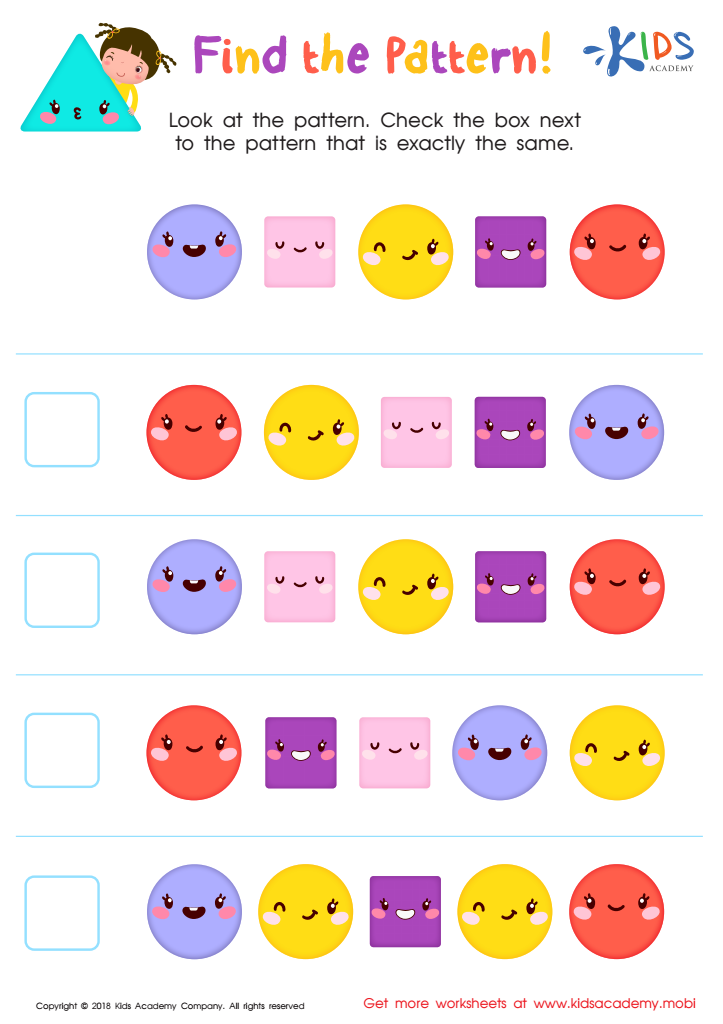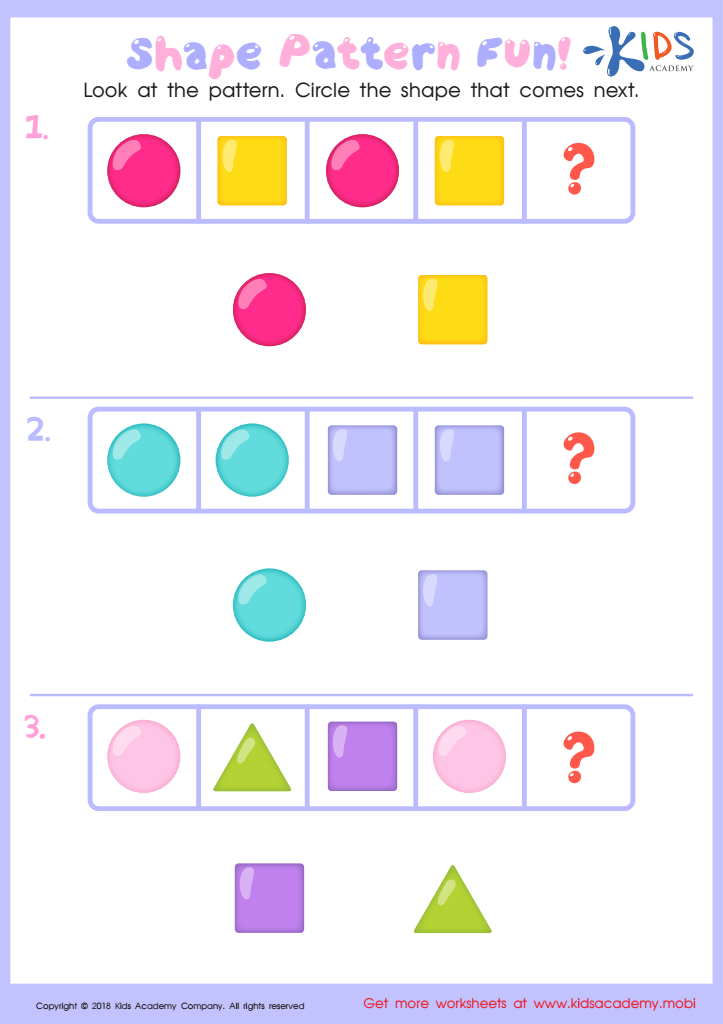Pattern recognition Normal Geometry Worksheets for Ages 4-5
3 filtered results
-
From - To
Foster foundational math skills with our Pattern Recognition Normal Geometry Worksheets designed specifically for ages 4-5. These engaging, age-appropriate worksheets help young learners identify, analyze, and extend patterns using shapes and colors. By enhancing their observational skills, children build essential problem-solving abilities in a fun, interactive way. Perfect for home or classroom use, our worksheets provide hands-on practice that lays the groundwork for geometric concepts and mathematical thinking. Discover how our expertly crafted activities can turn learning into an exciting adventure! Download now and give your child the head start they deserve in early math education.


Find the Pattern Worksheet


Make the Same Pattern Worksheet


Shape Pattern Fun Worksheet
Pattern recognition and basic geometry form foundational skills that are vital for the cognitive development of children aged 4-5. Parents and teachers should care about these areas because they lay the groundwork for later learning in diverse subjects, including math, science, and language.
Pattern recognition helps children develop crucial skills such as problem-solving and logical thinking. By identifying and predicting sequences, young learners build an understanding of order and structure, which can be applied across various contexts, including reading and math. Recognizing patterns, whether in colors, shapes, or numbers, enhances a child’s ability to categorize and make sense of the world around them.
Geometry, even at a basic level of understanding simple shapes and spatial relationships, is important for the development of spatial awareness and fine motor skills. Early exposure to geometric concepts helps children visualize and manipulate objects in their mind’s eye, a skill that's directly linked to success in higher-level math and science courses. Moreover, understanding shapes and spatial relationships is crucial for many day-to-day activities, like navigating spaces and solving puzzles.
By encouraging pattern recognition and geometry from an early age, parents and teachers can foster a child’s enthusiasm for learning, enhance their cognitive abilities, and build a solid foundation for academic and life skills that are essential as they grow.
 Assign to My Students
Assign to My Students



















